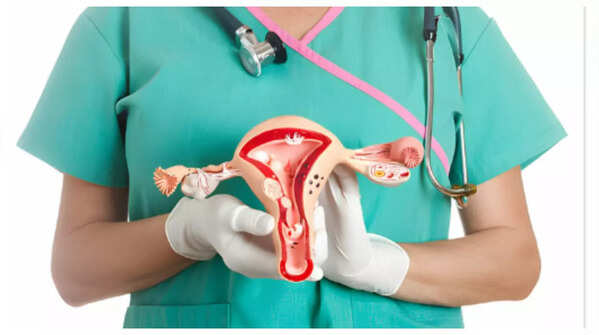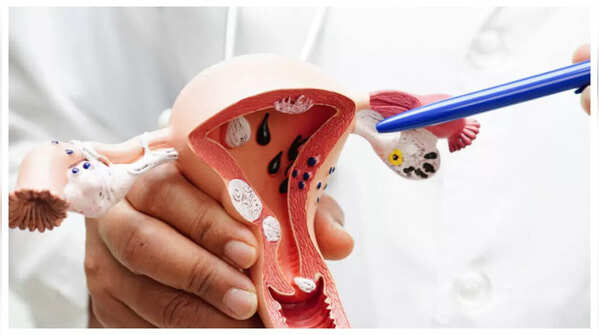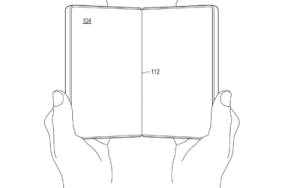Cervical cancer arises from the uncontrolled growth of cells in the cervix, the lower part of the uterus connecting to the vagina. The primary cause is persistent infection with specific types of human papillomavirus (HPV), a prevalent sexually transmitted infection. While most HPV infections resolve naturally, enduring infections with high-risk strains can trigger cervical cancer.
Like all cancers, early detection of cervical cancer significantly improves treatment outcomes. However, due to its slow progression, certain signs and symptoms can be easily overlooked. Here are five early indicators of cervical cancer that often go unnoticed:

One of the earliest warning signs of cervical cancer is abnormal vaginal bleeding. This can manifest as:
Many women experience irregular bleeding due to hormonal changes or infections, leading them to ignore this symptom. However, any bleeding that deviates from your normal pattern should be checked by a healthcare professional.

A small amount of vaginal discharge is common, particularly around ovulation. However, changes in its characteristics can signal a problem. Cervical cancer may cause discharge that is:
This discharge can occur between periods or after menopause. While often mistaken for infection or irritation, it's essential to seek medical evaluation.

Pain or discomfort during sex can stem from various conditions, including infections or hormonal fluctuations. However, it can also be an early symptom of cervical cancer. This pain might feel like:
Due to its sensitive nature, many women hesitate to discuss this symptom. However, persistent pain during intercourse is never normal and requires medical evaluation to rule out serious causes, including cervical cancer.

Mild pain in the lower back or pelvic region often results from muscle strain or menstrual cramps. However, persistent or unexplained pain in these areas can be an early sign of cervical cancer, especially when accompanied by abnormal bleeding or discharge.
The pain is often described as a dull ache or pressure between the hip bones or in the lower abdomen. Frequently overlooked or attributed to less serious causes, persistent pelvic or lower back pain that doesn't respond to home remedies warrants medical attention.

Early cervical cancer can affect adjacent tissues, including the bladder and urinary tract, leading to symptoms such as:
These symptoms are often mistaken for urinary tract infections (UTIs), which are common in women. However, persistent urinary symptoms despite treatment necessitate further evaluation to exclude cervical cancer.

Awareness and regular health checkups are crucial for early detection. The HPV vaccine offers protection against HPV types responsible for cervical, vaginal, vulvar, penile, anal, and oropharyngeal cancers, as well as genital warts. Women can receive the vaccine as early as 11 or 12 years of age and up to age 45 (consult your doctor).
Newer articles
Older articles
 Vitamin D Could Slash Tooth Decay Risk by 50%, Study Suggests
Vitamin D Could Slash Tooth Decay Risk by 50%, Study Suggests
 Indian Cricket Star Mukesh Kumar and Wife Divya Singh Announce Birth of Son
Indian Cricket Star Mukesh Kumar and Wife Divya Singh Announce Birth of Son
 Shubman Gill's Captaincy Under Fire: Bold Calls Needed After England Test Defeat
Shubman Gill's Captaincy Under Fire: Bold Calls Needed After England Test Defeat
 Microsoft Aims for Foldable Redemption with Novel Hinge Design to Rival iPhone and Android
Microsoft Aims for Foldable Redemption with Novel Hinge Design to Rival iPhone and Android
 Popular Finance YouTuber's Account Hacked, Bitcoin Scam Promoted: Security Lessons Learned
Popular Finance YouTuber's Account Hacked, Bitcoin Scam Promoted: Security Lessons Learned
 Esha Gupta Breaks Silence on Hardik Pandya Romance Rumors: 'We Were Just Talking'
Esha Gupta Breaks Silence on Hardik Pandya Romance Rumors: 'We Were Just Talking'
 Hollywood's Love Affair with India: Iconic Film Locations Revealed
Hollywood's Love Affair with India: Iconic Film Locations Revealed
 Rishabh Pant Aims to Surpass Virat Kohli in Test Century Tally During England Series
Rishabh Pant Aims to Surpass Virat Kohli in Test Century Tally During England Series
 Prithvi Shaw Credits Sachin Tendulkar's Guidance for Career Revival After Setbacks
Prithvi Shaw Credits Sachin Tendulkar's Guidance for Career Revival After Setbacks
 Ashada Gupt Navratri 2025: Unveiling Dates, Timings, Significance & Secret Rituals
Ashada Gupt Navratri 2025: Unveiling Dates, Timings, Significance & Secret Rituals